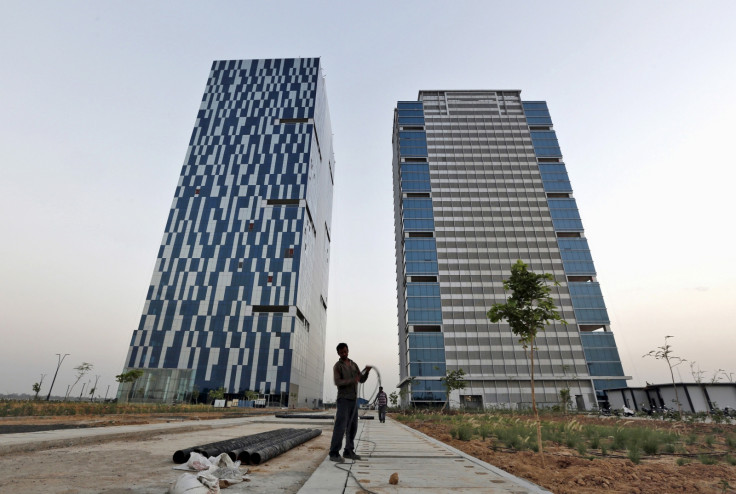India's first 'smart city' takes shape in western state of Gujarat

Coming up in the Indian prime minister's state of Gujarat is what is being touted as the country's first "smart city" even as the definition of what constitutes "smart" is to be decided.
Taking shape outside Gandhinagar, capital of Gujarat, the Gujarat International Finance Tec-City (GIFT), for now just has two massive office blocks and an underground infrastructure. But it is expected to double up as a financial hub, with tax and other breaks to lure investors.
Including an underground tunnel for utilities, a first in India, GIFT aims to compete with India's financial capital of Mumbai as well as overseas rivals like Dubai and Singapore.
Prime Minister Narendra Modi has promised 100 smart cities by 2022 to help meet the exodus into cities.
To be built at a cost of about $1tn(£0.7tn), according to estimates from consultants KPMG, these cities with towering high-rises will see drinking water on tap, automated waste collection and a dedicated power supply, among other things yet to be detailed.
India's urban population is set to rise by more than 400 million people to 814 million by 2050 and many of its cities are reeling under unplanned growth.
"Most (Indian) cities have not been planned in an integrated way," Jagan Shah, director of the National Institute of Urban Affairs which is helping the government set guidelines for the new projects, told Reuters.
Lack of experts to make such huge projects work and hazy ideas about what a smart city is, will mean delays in executing the ambitious plan.
Many experts do not believe that smart cities are the solution to the mass influx, but rather to build smart villages and also to address challenges in existing cities.
Singapore a 'smart nation'
Singapore recently announced plans to become the world's first "smart nation" by wiring up every inch of the country to collect data and build better services.
While connecting its entire infrastructure is Singapore's definition of a smart city, Abu Dhabi's Masdar City aims to achieve a sustainable, energy efficient entity.
Covering six square kilometres, Masdar city will be home to 45,000 to 50,000 people and 1,500 businesses. An efficient public transport system, unique construction based on sustainable technology and use of renewable energy are among its major objectives.
Initiated in 2006, the project was delayed and the first phase will be completed this year at a cost ranging between $18.7bn and $19.8bn.
© Copyright IBTimes 2025. All rights reserved.





















